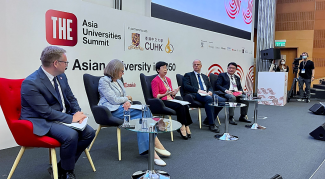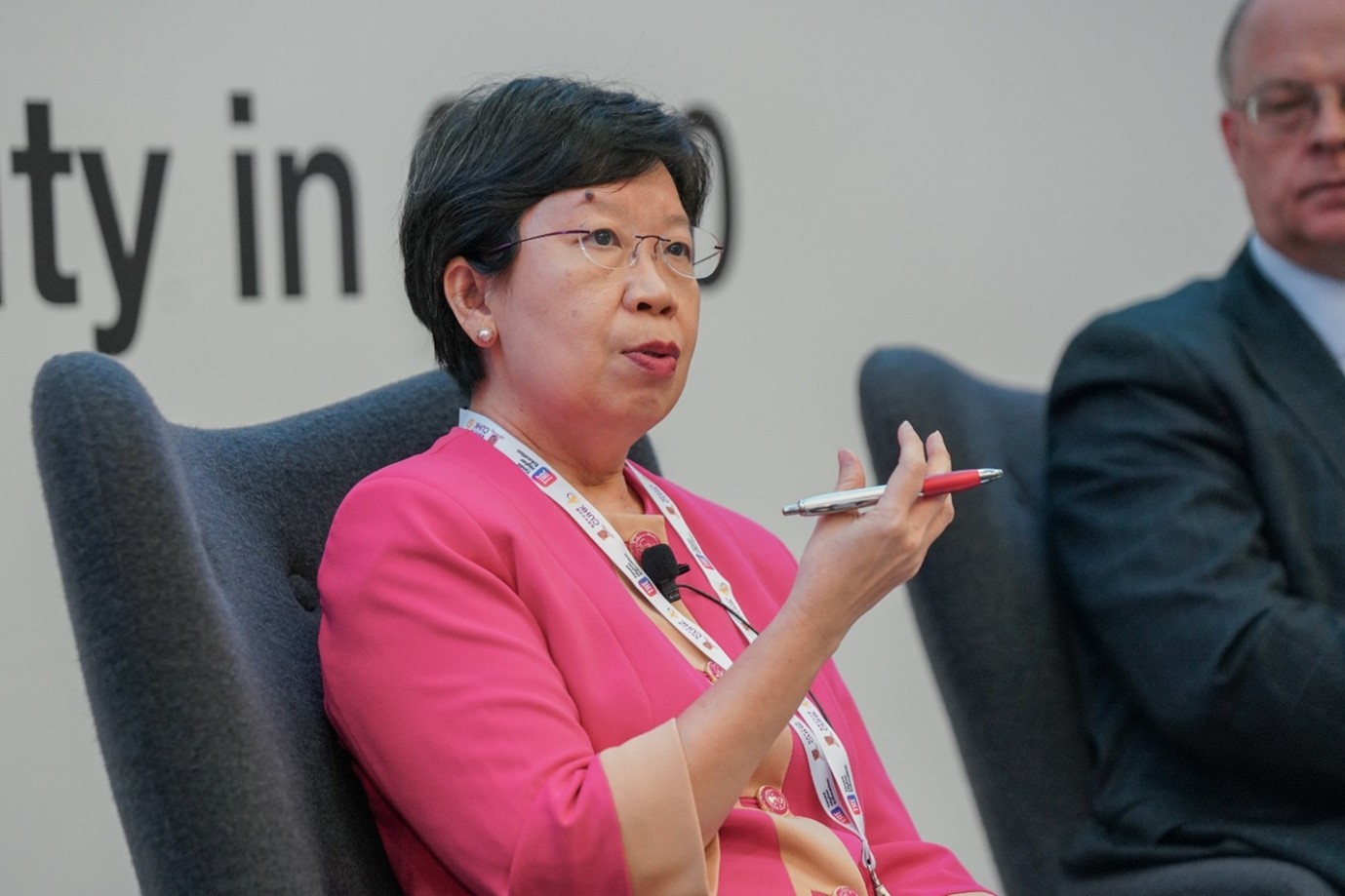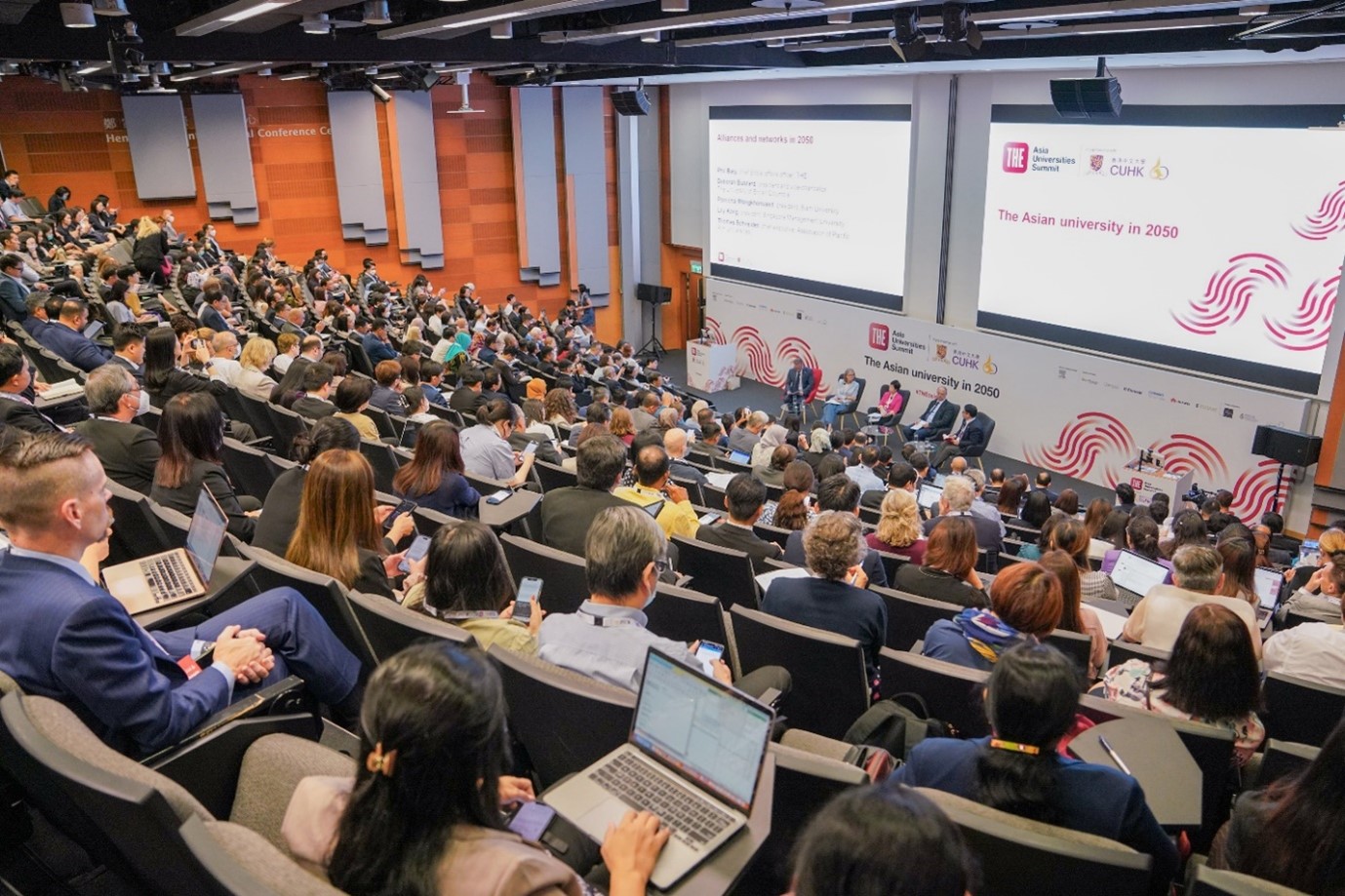
“Alliances in 2050 would become even more important for universities…the value of the alliances is preciously in its multiplicity,” said SMU President, Professor Lily Kong, at the Times Higher Education (THE) Asia Universities Summit 2023 on 21 June 2023 during a panel discussion on the topic “Alliances and Networks in 2050”.
The session was part of the three-day Summit organised by THE in partnership with the Chinese University of Hong Kong. Sharing the panel with Prof Kong were three prominent higher education leaders, namely Professor Deborah Buszard, President and Vice-Chancellor of The University of British Columbia (UBC); Professor Thomas Schneider, Chief Executive of the Association of Pacific Rim Universities and Professor Pornchai Mongkhonvanit, President of Siam University.
The panellists explored the role of higher education alliances, networks and consortia across Asia and their expected development by 2050 and approached the dialogue topic from diverse angles, including new models for collaboration in higher education in Asia, geopolitics and networks, locally initiated alliances, and partnerships of the future.
Prof Kong was of the view that in a world characterised by fragmentation and multiplicity, alliances and networks were poised to assume even greater importance. The rise of higher education in Asia and its contextual relevance provided the impetus for regional alliances to grow. At the same time, commonality amongst universities could transcend geography and regional boundaries. Thematic networks within alliances would also add value through connecting experts and resources across disciplines and sectors.
“I want to make a special shout-out for thematic alliances and our own experiences at SMU. We found that is working really well … I cite the example of the ASEAN University Network, a regional alliance but within that are thematic networks that SMU lead, such as the AUN Technology-Enhanced Personalised Learning (AUN-TEPL) Network and the Libraries of ASEAN University Network (AUNILO). These thematic networks within the regional context add another layer of value-add to the partnership that I think stands as well for cooperation, because those groups that are getting together have common interests, focus and challenges that they can really talk about beyond the general alliances and networks.” Prof Kong remarked.
Concurring with Prof Kong’s insights, Prof Deborah Buszard shared UBC’s experience in partnership with other Canadian universities in thematic collaborations, such as veterinary training.
Fielding a question from Mr Tim Sowula, Editor, Times Higher Education World Summit Series about measuring the impacts of partnerships, Prof Kong commented that partnership impacts are not only measured by the number of concrete collaborations established, such as student mobility numbers enabled and collaborative research projects initiated. One should also value the intangible benefits, the sharing of tacit knowledge and the dynamic relationships formed.
During the hour-long discourse, the panellists also exchanged views on partnerships with industry, adapting university to students' needs as well as harnessing shared expertise and resources for education. More than 500 university leaders, administrators and key higher education industry representatives from the Asia Pacific attended the session.

